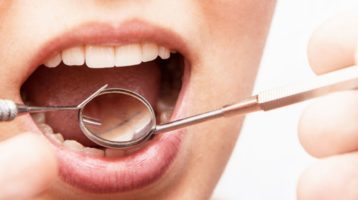As more is understood about melatonin, its many benefits to overall health are becoming clear. One of the most curious advantages of sufficient levels of melatonin relates to oral health. Before we begin to understand the relationship between melatonin and periodontal disease, it is important to learn more about these two elements separately.
What is Periodontal Disease?
 Also commonly known as gum disease, periodontal disease is a severe infection of the gums that leads to damage of the soft tissue that surrounds the teeth. Without proper treatment, this issue can seriously damage and destroy the supporting bones around the teeth. This damage can also cause teeth to loosen and possibly fall out or die.
Also commonly known as gum disease, periodontal disease is a severe infection of the gums that leads to damage of the soft tissue that surrounds the teeth. Without proper treatment, this issue can seriously damage and destroy the supporting bones around the teeth. This damage can also cause teeth to loosen and possibly fall out or die.
There are two primary types of periodontal disease: gingivitis and periodontitis. Gingivitis is the inflammation of the tissue around the tooth that occurs as a result of dental microbial plaque. In contrast, periodontitis is caused by a bacterial infection that leads to inflammation and soft tissue damage. It is important to note that gingivitis is a precursor to periodontitis, however, gingivitis does not always lead to periodontitis.
Periodontal disease is often present with other types of systemic conditions. Some of the most common health issues that may accompany periodontal disease include depression, Alzheimer’s disease, various metabolic syndromes and diabetes.
While periodontal disease is common, it can be prevented with proper oral hygiene. This means brushing your teeth at least twice daily, flossing once per day and getting an oral checkup twice a year. Swishing with mouthwash at least once per day can also help to dislodge trapped food and bacteria while reducing plaque.
Symptoms of Periodontal Disease
There are numerous symptoms associated with periodontal disease. You may experience just a few of these symptoms. Some of the most common symptoms include swollen or bleeding gums, bad breath, gums that begin to recede from the teeth, pain when chewing food and blood in the mouth when brushing or flossing. If you experience any of these symptoms, it is imperative that you check with your dental health care provider.
While most people understand melatonin’s role in creating healthy sleep patterns, its other functions are not as widely understood. This critical hormone is secreted by many organs as well as by the pineal gland. In addition to its importance in helping to regulate the body’s natural circadian rhythms, melatonin also delivers vast antioxidant and anti-inflammatory benefits to the entire body. Because it is known as a free radical scavenger, this hormone also provides immune system support.
How Melatonin and Periodontal Disease Affect Oral Health
Numerous research studies over the years have demonstrated how melatonin can boost oral cavity health. Melatonin is released into the saliva via the salivary glands. Researchers believe that melatonin’s effects on oral health are due to its anti-inflammatory and antioxidant activities. The release of melatonin can suppress the inflammation of the gingiva and periodontium. In addition, it may reduce bone loss, reduce the incidence of oral cancer, mitigate alveolar bone loss, protect against herpes lesions, improve the osteointegration of dental implants and more.
The immense antioxidant power of melatonin can also speed up the healing process. This may be instrumental in helping patients to heal more quickly after oral surgical procedures or tooth extractions.
As it specifically relates to periodontal disease, melatonin works to reduce the harmful free radicals that damage gingival tissue. Melatonin also helps stimulate the synthesis of particular collagen fibers to reduce the incidence of periodontal disease. The production of melatonin also increases reactive oxygen species (free radicals) to reduce the amount of tissue damage in the mouth.
How to Use This Knowledge

As a result of the continuing research, medical care professionals now suggest that it may be appropriate to recommend local melatonin administration to patients who exhibit reduced levels of saline melatonin. This administration may be particularly important to the elderly population or those individuals who display salivary gland issues. By ensuring that there is an appropriate amount of melatonin in the mouth, it may be possible to reduce the incidence of disease.
Understanding how you can harness the many benefits of melatonin can help you to boost many facets of your health, including the health of your oral cavity. The research is clear that sufficient amounts of melatonin may also reduce the incidence and severity of periodontal disease.







